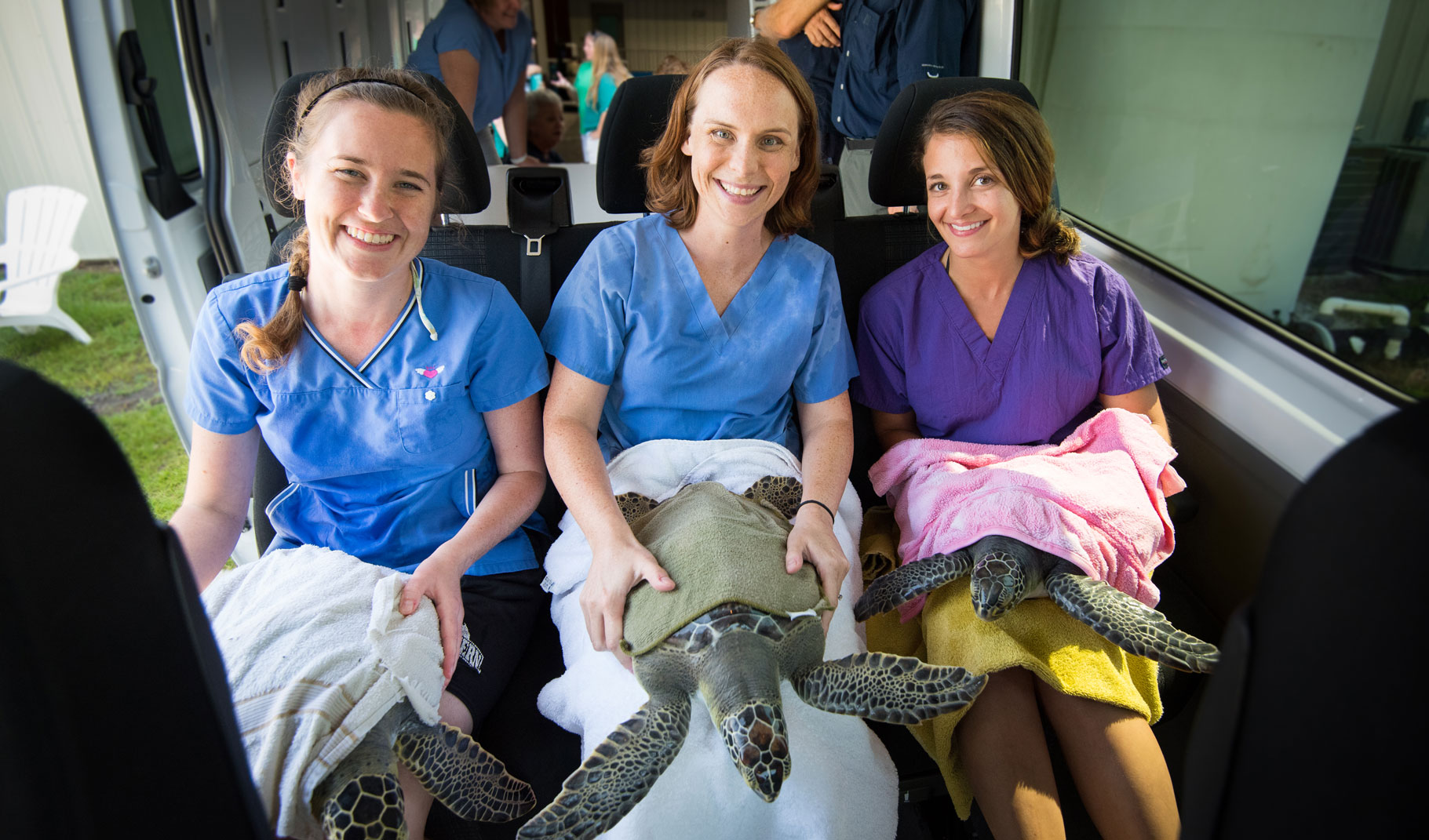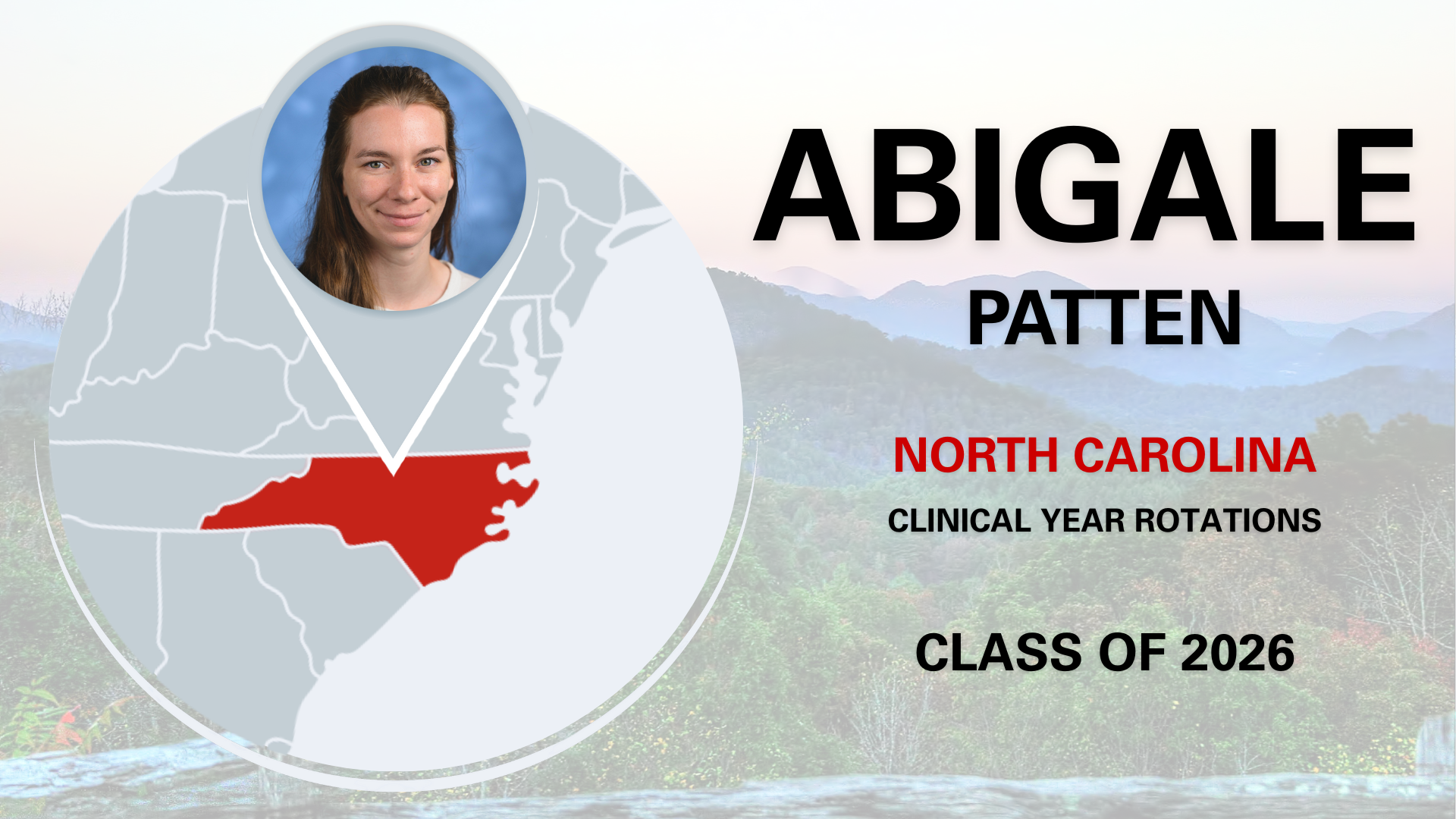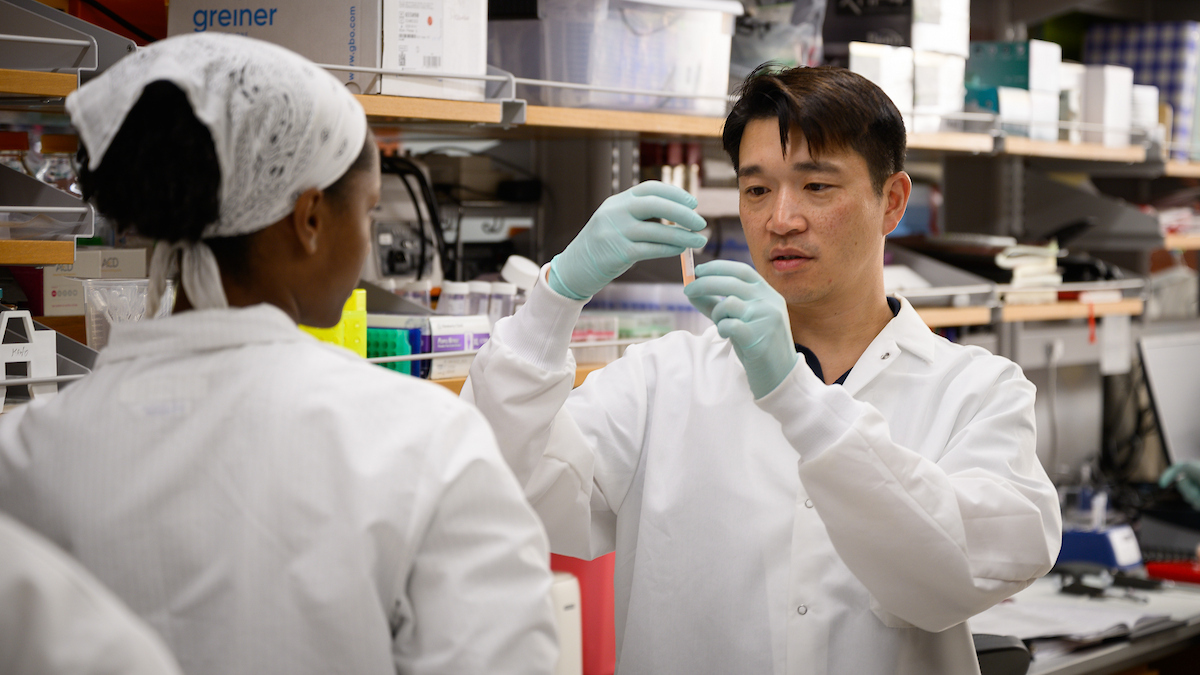Turtle Rescue Partnership Turns 20

The North Carolina State University College of Veterinary Medicine (CVM) and the Karen Beasley Sea Turtle Rescue and Rehabilitation Center (KBSTRRC) celebrated 20 years of partnering to preserve and protect sea turtle populations on Thursday, September 8 with a special release of rehabilitated turtles on the coast of North Carolina. Hundreds of onlookers cheered as five rescued turtles — two loggerheads and three greens — were returned to their ocean home.
It also marks the 11th year that fourth-year students from the CVM have the opportunity to experience a clinical rotation in sea turtle rehabilitation and rescue. The turtle release was timed to coincide with the rotation so students could be involved with the event. The six students plus several volunteers escorted the turtles — named Piglet, Petunia, Redbud, Dandelion and Sweet Pea, the largest at 275 pounds — one by one into the surf. Each turtle had a star turn down the beach, passing by applauding fans and paparazzi not unlike celebrities on a red carpet.
The official collaboration was established 20 years ago by the founder of the KBSTRRC, Jean Beasley, and CVM Professor of Aquatic, Wildlife and Zoological Medicine Greg Lewbart, who began their collaboration informally in 1993, when they worked together to restore a rescued sea turtle dubbed “Lucky” back to health.

The Beasley Center was founded by Jean Beasley in memory of her daughter, Karen, who was a passionate advocate for the protection of sea turtles. The two began the project on their own, working from their home, and it grew slowly but steadily from there. Karen passed away at age 29 in 1991. Before her death, she worked with her mother to establish a continuing legacy of working on behalf of sea turtle protection — and Jean has worked tirelessly to make Karen’s wish a reality ever since, culminating in the opening of the Beasley Center in 1997. The effort has proven so successful that to date the Center has rehabilitated and released hundreds of sea turtles, and has grown from an initial one-room 850-square-foot building to its current 13,600 facility at Surf City.
The majority of the Beasley Center rescued turtles can be housed and treated on site, including more simple surgeries for cases like removing fish hooks, but for more serious or complex circumstances, occasionally turtles are brought to the CVM campus, where they can be treated by the specialists at the NC State Veterinary Hospital.
Working closely with the Beasley Center is Craig Harms, CVM professor of Aquatics, Wildlife, & Zoological Medicine. Harms directs the Marine Health Program at the NC State Center for Marine Sciences and Technology (CMAST), and conducts clinically applied research on health and diseases of aquatic and nondomestic species in the course of delivering veterinary services and support at the NC Aquariums, the Karen Beasley Sea Turtle Rescue and Rehabilitation Center, marine mammal and sea turtle stranding networks, area research aquaculture facilities, and our Morehead City/Beaufort area marine laboratories. His location on the coast provides NC State with an on-site connection with our partners, and to important educational resources for CVM students.
[pullquote color=”blue”]The fourth-year clinical rotation in sea turtle rehabilitation and rescue available to CVM students is the only one of its kind in the world…[/pullquote]
Harms took over from Lewbart as the primary veterinarian working with the Beasley Center in 1999, and he became the first CVM faculty member to be located on the coast. Today, in addition to working with the Beasley Center, Harms and his staff and students work with the North Carolina State Aquariums, the state Wildlife Commission, NOAA and others on a range of clinical and research partnerships. Both Harms and Lewbart also cite the early efforts of CVM professors Michael Stoskopf and Suzanne Kennedy – Stoskopf in helping to establish the College’s partnership with the Beasley Center and its permanent presence on the coast working on aquatic wildlife medicine.
Thanks to the efforts of Harms, Lewbart and others, the fourth-year student clinical rotation available to CVM students at CMAST is the only one of its kind in the world, and provides students with a rare opportunity to gain experience in the treatment of marine wildlife — including sea turtles, who have definitely become something akin to the rock stars of the marine world.
From its modest beginnings, the partnership between the Beasley Center and the CVM has evolved spectacularly into a model of species preservation, education and research.
After Sweet Pea, the last of the five turtles being released, disappeared beneath the waves, the team was in a celebratory mood. As the crowd of onlookers began to disperse, Lewbart, Harms, and the six fourth-year students at the event — Kristina Baltutis, Bailey Brame, Allie Lebenson, Adeline Noger, Megan Schreeg and Stephanie Wells — jumped into the water in their street clothes, put their arms around one another’s shoulders and smiled for the cameras, a fitting conclusion to the day’s festivities.
[highlight color=”gray”]
Photo Gallery:
[awesome-gallery id=358701]
[/highlight]
~Steve Volstad/NC State Veterinary Medicine


